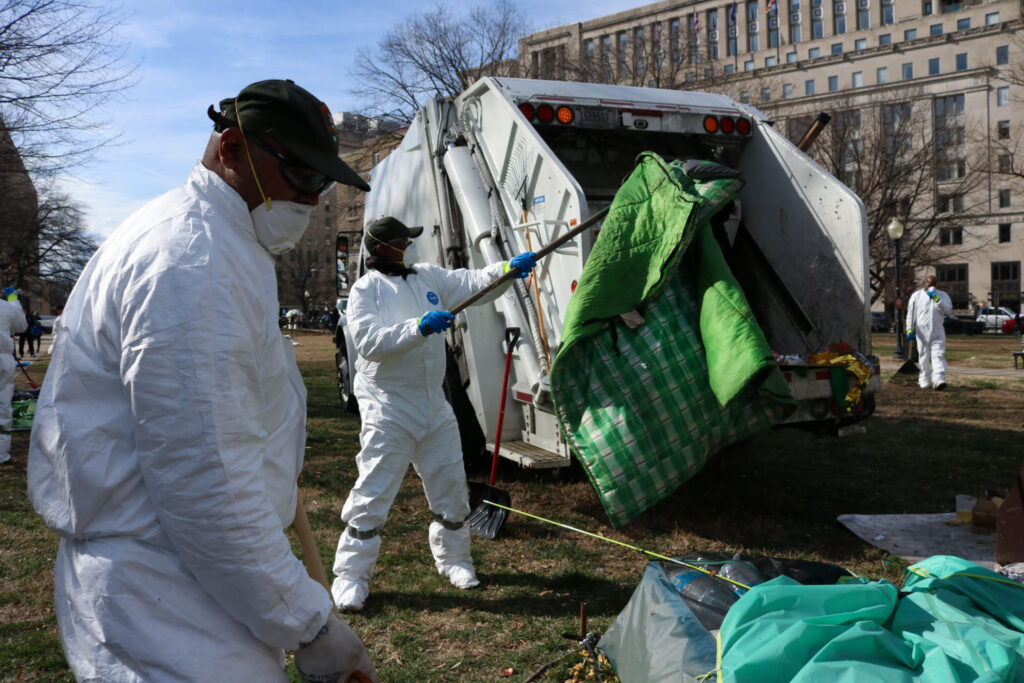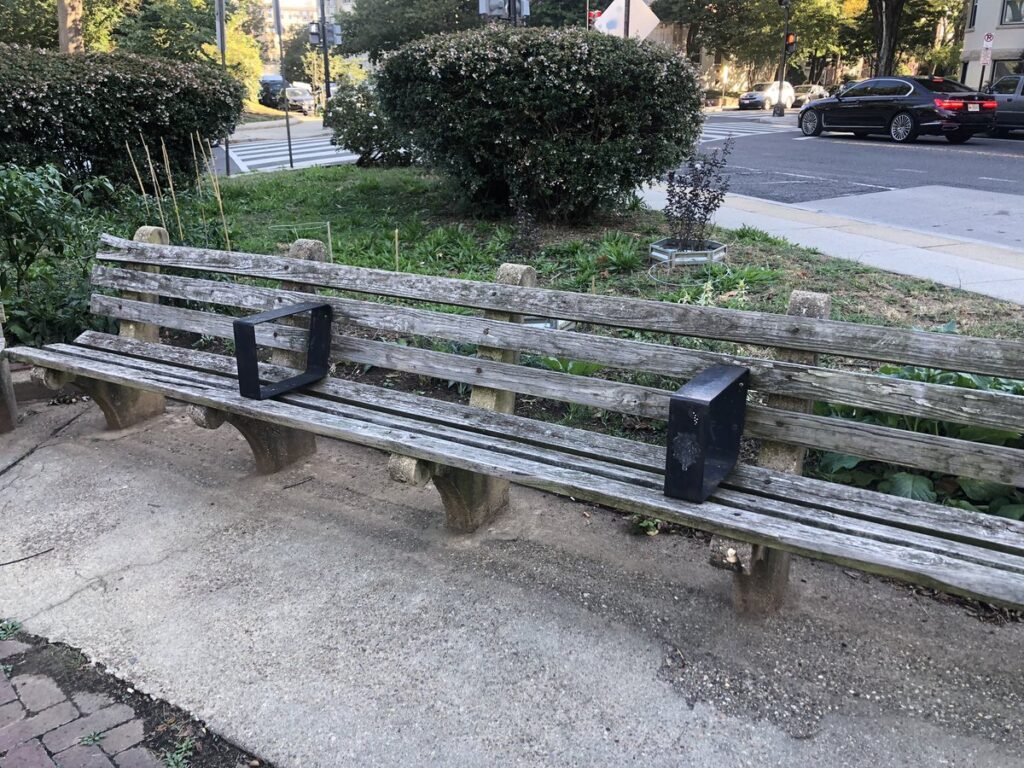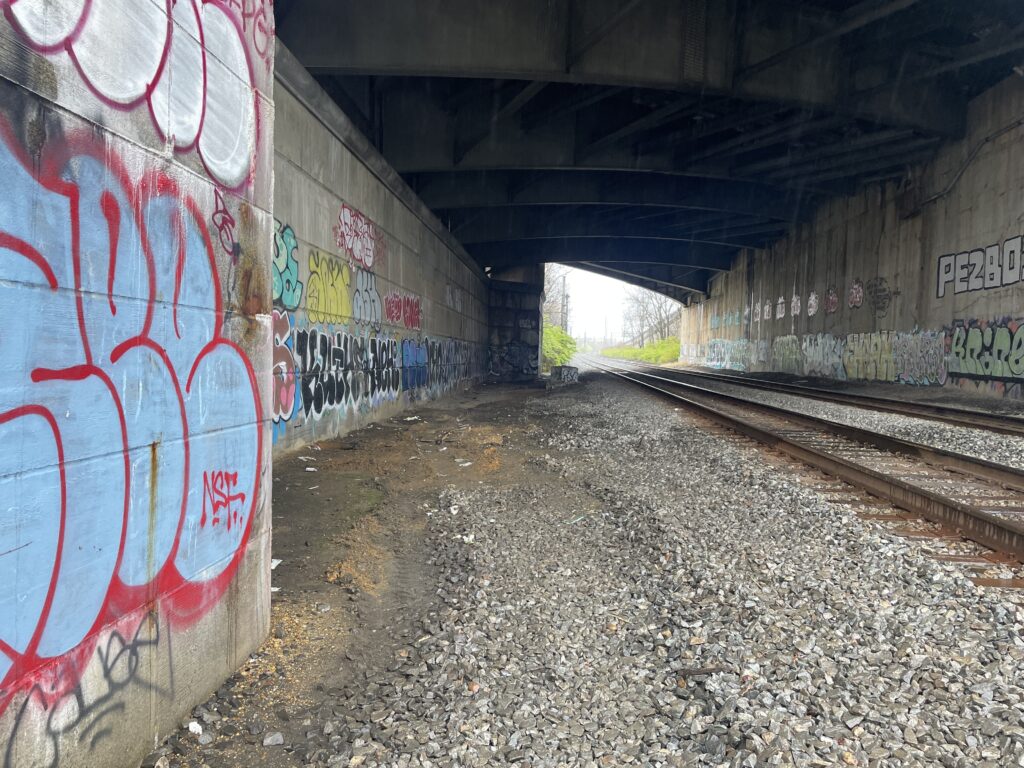As the National Park Service moves to close all local encampments on its land, the D.C. government is considering relaunching a controversial pilot program that aims to connect encampment residents with housing vouchers.
At least in concept, the Coordinated Assistance and Resources for Encampments (CARE) Pilot Program pairs the residents with housing prior to closing an encampment. But concerns about the hundreds of people who are eligible for but still waiting on a housing voucher mean the program, which many homeless advocates criticized when it first launched, remains on pause for now, Deputy Mayor for Health and Human Services Wayne Turnage testified at a Health Committee oversight hearing on Feb. 16.
Since October 2021, the D.C. government has closed 22 encampments on city land, displacing 142 people, according to numbers Turnage presented to the D.C. Council. The District paired 84 of those residents to a housing subsidy or temporary program, though it can take up to nine months for someone matched to housing to actually move into an apartment. D.C. operated the CARE pilot program at two of those encampments and at two others on federal land, housing 100 out of 139 people displaced from those four sites.
Turnage said those numbers demonstrate success and may justify the program’s relaunch, an idea that he and other officials are discussing.
But advocates for people experiencing homelessness contend the program wasn’t as successful as those numbers might indicate. Besides the fact that not everyone who was evicted from the sites moved into housing, they say, some encampment residents were not even included on the official list of people who lived at the site and thus weren’t offered housing. Additionally, they argue, forcing residents to obtain housing by an arbitrary deadline traumatizes those who haven’t moved out in time.
“Constantly treating people like physical trash that you don’t want to be seen does not inspire hope for them to participate in the support systems,” Kelly Andreae, executive director of the Georgetown Ministry Center, said at the hearing.
People living in the recently cleared McPherson Square expressed similar feelings of disillusionment and mistrust. Though the District did not implement the CARE pilot at that encampment, both the city and the federal government repeatedly told residents that everyone eligible would be connected to housing before the closure. Only 22 out of 47 eligible residents moved into temporary housing before the eviction; another three moved to shelters, and two into permanent housing.
“They keep saying, ‘I’m here to help you,’ but they never come. And then they just come and tell you, ‘Get out, you’re worthless, you don’t belong,’” Umi, a former McPherson Square resident, said at the hearing.
Currently, an estimated 325 people live in encampments in D.C., according to Turnage, who oversees the city’s encampment response team.
CARE Pilot could return
When the CARE Pilot Program launched, the city promised to offer unhoused people living in encampments a chance to move into a subsidized apartment before any closure. The city used the CARE pilot at four encampments in late 2021 and early 2022: NoMa; a park at New Jersey Avenue and O Street NW; 21st and E streets NW; and 25th Street and Virginia Avenue NW. All told, according to Turnage’s figures, the pilot ousted 139 residents, 111 of whom spoke to outreach workers.
The pilot program, he said, moved 100 people into temporary housing with city money and then into more permanent homes through either federal or local time-limited or permanent subsidy programs. According to Turnage, about two-thirds of the pilot program participants have entered or are expected to enter Permanent Supportive Housing, Targeted Affordable Housing or Rapid Re-Housing. The deputy mayor’s office did not respond to questions about the fate of pilot participants who did not qualify for one of those housing programs.
At the Feb. 16 hearing, Turnage said the Bowser administration initially planned to expand the pilot but held off given that hundreds of people received housing vouchers but have yet to be able to use them to move into housing. But even if the city can resolve the voucher backlog, there’s another complicating factor: whether people living in encampments should be prioritized for vouchers over others experiencing homelessness.
“We cannot ignore the 1,400 or so people who are living in the shelters,” Turnage said at the hearing. “If we give everybody priority for housing who are living in encampments … what message are you sending to the people who are living in shelters who have been waiting for housing for years?”
If the city were to adopt an official policy of prioritizing encampment residents for housing, Turnage said he worries people might leave shelters to sleep outside, potentially exposing themselves to harsh conditions. Another perhaps unavoidable consequence, according to Turnage, is drawing residents from Maryland, Virginia or elsewhere who think they can obtain permanent housing if they are living at a D.C. encampment. This is one reason Turnage insists that the CARE program, if it is relaunched, has to include a timeline for closing the encampment site where residents are being connected with housing vouchers.
“We have to accept the reality that because of our porous borders, there will be people who will come to the District and live in an encampment with the expectation that they are going to be housed because of the publicity,” he said.
This article was co-published with The DC Line.
Annemarie Cuccia covers D.C. government and public affairs through a partnership between Street Sense Media and The DC Line. This joint position was made possible by The Nash Foundation and individual contributors.








